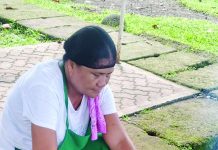Biliran tops list in EV
TACLOBAN CITY– The Visayas region is rapidly emerging as a new hotspot for the illegal cigarette trade, registering a 6% incidence rate, closely following Luzon’s 8%, according to data from the National Tobacco Administration (NTA).
Mindanao remains the epicenter of the illicit tobacco trade, with a staggering 45% incidence rate. The data was shared during a recent industry forum organized by the NTA.
Among the provinces in the Visayas, Biliran has the highest rate of illicit cigarette trade at 6%, followed by Eastern Samar, including Southern Leyte, which recorded a 3.7% incidence rate as of the second quarter of this year—an alarming rise from just 1% in 2022.
In contrast, Zamboanga Sibugay leads Mindanao with 87.5% of tobacco products being illegal, and in some parts of Mindanao, nine out of ten cigarettes sold come from illegal sources.
Luzon, while faring better, still grapples with significant illegal trade, with Bataan having the highest incidence at 58.2%.
The NTA identified that the illegal tobacco products are being smuggled from neighboring countries such as Malaysia and Indonesia, with Mindanao serving as the primary backdoor entry point.
These smuggled cigarettes are openly sold in stores and public areas across the Philippines, priced between P3 and P4 per stick—much lower than the P8.55 per stick for legitimate, tax-paid brands.
Interestingly, the study revealed that while half of the Filipino smokers surveyed recognized that the illegal tobacco trade poses a threat to the country, 43% admitted they would still be comfortable buying cigarettes they knew to be illegal.
This suggests a growing normalization of the illicit trade, with 33% of Filipino smokers expressing a willingness to continue patronizing illegal cigarettes
This widespread smuggling has led to a sharp drop in government tax revenues from the tobacco industry, from a record high of P176 billion in 2021 to just P135 billion in 2023.
The Bureau of Internal Revenue (BIR) and Congress estimate that the government loses between P60 billion to P100 billion annually due to the illicit tobacco trade.
In response to this escalating issue, President Ferdinand Marcos Jr. has ordered all government agencies to step up their efforts in combating the illicit tobacco trade.
The goal is not only to recover lost revenues but also to protect the livelihoods of local tobacco farmers.
To reinforce this commitment, President Marcos recently signed the Anti-Agricultural Economic Sabotage Law, which classifies tobacco products as protected commodities.
Smuggling, hoarding, and profiteering of these goods are now considered acts of economic sabotage, carrying stiff penalties and being non-bailable offenses.
The passage of this law is seen as a critical step toward curbing the illegal tobacco trade in the Philippines, particularly in regions like Visayas, where the problem is rapidly growing.
(JOEY A. GABIETA/LIZBETH ANN A. ABELLA)



